How to find the best financial advice? We asked the experts
We asked some of The Deal/Barron’s Top 100 Financial Advisers for their tips on how to manage money and where the industry is heading.
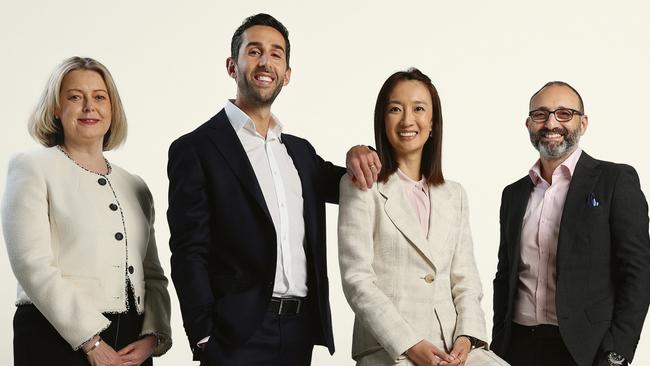
Starting too late is the biggest single mistake clients make when they are looking to secure their financial futures, says adviser Charlie Viola
“Get on with it, start learning and creating wealth through investment in quality assets,” he tells his younger clients.
Mr Viola from Viola Private Wealth features in this year’s The Deal/Barron’s Top 150 Financial Advisers list.
Laurel Moulynox from Morrows Private Wealth, who also made the list, says putting extra money into superannuation is still worth the trouble for most clients, especially if they start early.
“Making extra contributions to your superannuation is one of the best ways to build long-term wealth, especially if you start early, she said. “Even small additional contributions each month can grow significantly over 20 or 30 years due to the power of compounding. It’s a strategy that rewards consistency and time.”
Check out what our other top advisers have to say about their industry’s future and the best ways to grow your wealth.
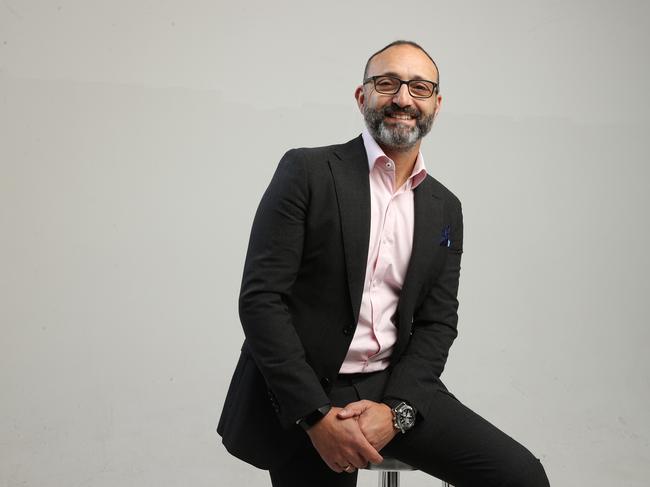
Charlie Viola
Viola Private Wealth
What is the one outstanding item you believe is restricting the availability of advice to everyday Australians, and what can be done about it?
Governance. People like me, and really every adviser, want to see people with bigger investable balances. Commercially, and even intellectually, it’s more rewarding. These businesses are expensive to run, so any scenario where you are restricted as to what you can charge to give your time and resources it’s going to be difficult.
We need to be OK about advice being separable. That is, when people are in phases of their life and need advice about what they do at that moment, we have to be OK about supplying that, rather then seeking to be completely holistic all the time. It makes it non-commercial but the recipients don’t get value from it because they really only care about meeting the needs they have there and then.
Big super funds are moving into financial advice – does it threaten independent advisers?
No, not at all. It’s a good thing. It solves some of the cost-of-advice issues for more mass affluent clients. It is cross-funded from super so it will be more affordable for those in that category. The clients we want in our sector are the ones who want the more complex and more bespoke solutions – it won’t change our addressable market.
Among younger clients what is the single most common mistake they make when they look at their financial future?
Starting too late! Get on with it, start learning and creating wealth through investment in quality assets.
If people are good at making money in their day jobs, does it help them make money as investors?
It will often correlate, yes. It is easier to explain concepts to them and, generally speaking, they understand risk better. They are also more amenable to advice, as they are generally more time poor.
How important do you think it is to meet your clients face to face?
Maybe I’m old-school, but I like doing face to face. These are very real relationships. You need to feel comfortable with each other. Building rapport face to face is often much easier than over Teams or Zoom. Video conference is certainly a handy tool, but it’s not the same, especially in the early part of the relationship.
Is putting extra money into superannuation savings still worth the trouble?
Yes! Super is the most effective tax structure we have. We should all be aiming to have as much of our wealth as we can in the environment by the time we retire, so we should all be taking advantage of it.
For pre-retirees what do you find to be the most important thing they need to think about?
I think as people start to move closer to wanting to make work optional, it’s really about making sure they consider what level of passive income they need, and what level of assets that will require. It’s a simple formula, but it’s a powerful discussion to help them get mathematical comfort that they will be fine.
Rich Australians are apparently rushing into “private” investments. Is it too late for everyone else to join the party?
No, not at all. In fact, it’s becoming way more prevalent and way more accessible. When I started doing this in the very early 2000s, there just wasn’t a heap of opportunity in the private wealth space. Now the accessibility to private debt, private equity, syndicated property, etc, is way better. It creates some risk that some people don’t know what they are investing in, but that’s our job. It’s incumbent upon us to find good-quality assets for people to invest in that generate the outcomes but also protect the client’s assets. Diversity and asset quality will always be the most important thing.
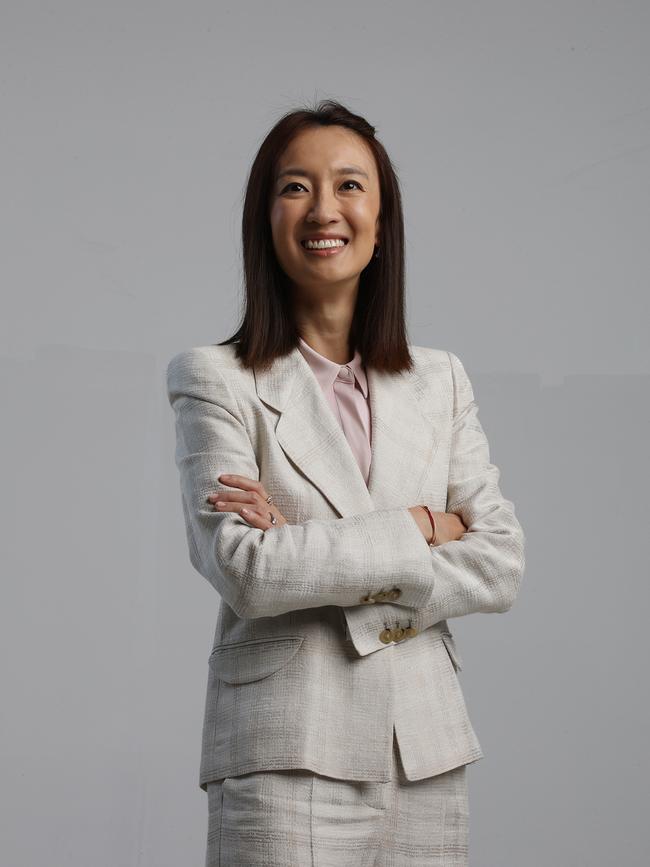
Cathy Ding
Morgan Stanley Wealth Management
Among younger clients what is the single most common mistake they make when they look at their financial future?
Many have built their wealth by building a business and/or investing in real estate. Some have also inherited significant wealth from family. These clients tend to have quite concentrated portfolios with a particular home bias towards property. As their trusted advisers, we assist our clients to diversify their wealth into investments such as bonds, equities, hedge funds, commercial real estate, and infrastructure, private equity and private credit, and provide access to a wide range of growth assets in markets all around the world.
If people are good at making money in their day jobs, does it help them make money as investors?
Earning a high income in your day job doesn’t necessarily correlate to being a good investor. However, a higher income can certainly help someone to achieve their financial goals faster. More important than this is having a regular savings and investment habit over a long period of time, and getting advice on optimal asset allocation strategies over the course of the many economic cycles that will inevitably occur during the average investor’s investment time horizon.
There is also a positive correlation between people’s living expenses and their income levels. As incomes rise, generally so too do living costs, and so it is not a foregone conclusion that higher income levels lead to greater investments or investment returns. Many of our high-income clients are either time poor or their training and education in their particular domain is not necessarily transferable to the world of investments. By partnering with us they are able to focus on growing their business while leaving the complex investment and asset allocation considerations to highly experienced professionals who can help preserve and grow their wealth over time.
Rich Australians are apparently rushing into “private” investments. Is it too late for everyone else to join the party?
It is not too late to get into private investments. With the lower level of new issuance in public markets for the last few years due in part to higher interest rates, many companies are raising capital through private markets. In addition, and particularly for Australia, the tighter lending laws have meant bank capital has largely disappeared from commercial deals, which has created opportunities in private credit markets. For investors, this has meant a larger pool of deals is available in private credit markets, and for disciplined and astute professionals this can lead to higher risk-adjusted returns provided disciplined underwriting standards are adhered to. Private equity as an asset class has allowed investors to gain exposure to many investment opportunities they cannot access through public markets. This can also increase portfolio diversification and enhance returns. Seeking professional financial advice is important here because the unlisted nature of this asset class means there is less liquidity and potential liquidity restrictions when entering/exiting investments.
Financial advice industry numbers have been cut in half; you are in the tiny minority that managed to get on our Top 150 list. Why do you think you made the cut?
A strong focus on client relationships over the longer term and providing access to a broad range of investment solutions tailored to their circumstances and risk profiles has made us trusted advisers to our clients. Many of our investors also have an overseas background. Investing in other countries can be complex. By partnering with us our clients have a team of professionals who can help them navigate the often complex and challenging investment landscape and provide exposure to a wealth of domestic and international investment opportunities they may otherwise not have access to.
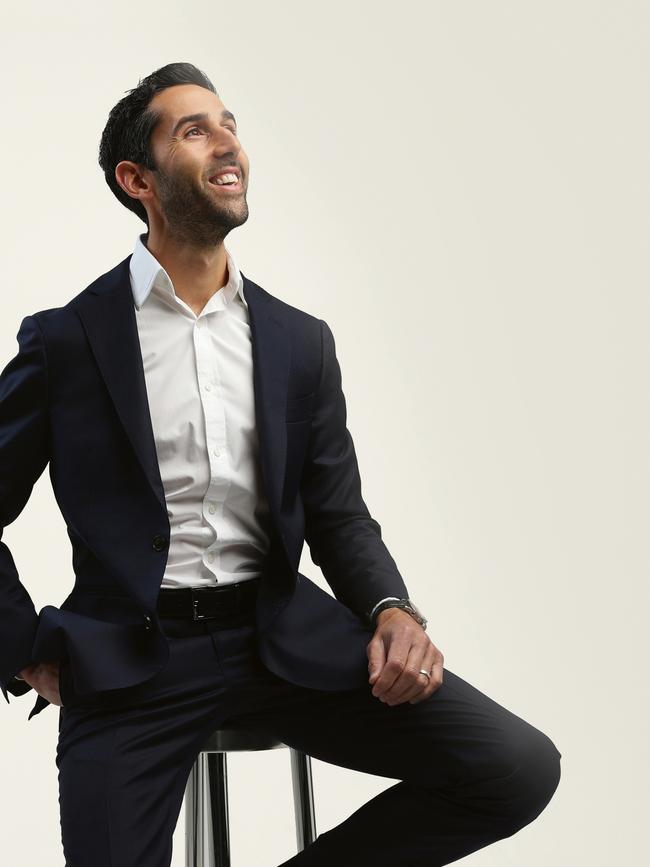
Richard Felice
Belay Advisory
How important do you think it is to meet your clients face to face?
There is no doubt that running virtual meetings is an efficient, highly lucrative way to run a business. However, meeting clients face to face is incredibly important to our business.
In-person meetings provide a unique opportunity to build stronger relationships and trust. Sitting down together allows for more meaningful discussions, where I can pick up on non-verbal cues, engage in real-time dialogue and gain a deeper understanding of client goals and concerns. It also creates a more personal connection, helping clients feel confident that I’m fully invested in delivering the best outcome that I can.
I also find face-to-face meetings to be more collaborative and complex matters become easier to discuss and resolve when we’re in the same room. There are countless times where face-to-face meetings go “off topic” and this presents different perspectives or opportunities for both parties to explore new ground. It allows for richer, more dynamic conversations that can often lead to insights or strategies that might not emerge through virtual communication alone.
There are also incidental opportunities to meet extended members of the client’s ecosystem – whether it be other family members or professional advisers – and this is highly beneficial to the overall relationship. Ultimately, my priority is to offer a highly personalised and intimate level of service, and I believe face-to-face interaction is key to delivering that.
Rich Australians are apparently rushing into “private” Investments. Is it too late for everyone else to join the party?
In some ways, yes. I think as time has gone on many managers are now opting for more scalable investment structures, which provide easier access to private investments. This can often come at the expense of terms or performance, for the sake of, say, liquidity, which we don’t philosophically agree with – access in itself shouldn’t be a reason to invest.
However, we think that private investments will continue to grow in importance as investors seek asset-level diversification and alternative sources of return, beyond more traditional assets. Strategies such as private equity and private debt/credit have always been an integral part of our client portfolios and we expect this to continue to be the case going forward, despite challenges around some of the best opportunities becoming capacity-constrained.
We’ve been very deliberate in establishing and nurturing relationships for more than a decade with key investment partners in order to access the highest-quality, most compelling opportunities. It would be much more difficult if you’re only just starting to venture into private investments now.
Our role, and the role of key advisers, remains balancing these opportunities with the need for capital preservation, liquidity and most critically the individual investor objectives.
Financial advice industry numbers have been cut in half; you are in the tiny minority that managed to get on our Top 150 list. Why do you think you made the cut?
We take pride in providing a highly personalised service to a small number of ultra high-net-worth investors. This allows us to provide a bespoke service that is client-centric and, importantly, retain sufficient capacity to support client needs and constantly evolving (often in a material way!) circumstances. There are investment principles we apply in our business that also help define who we are and why we are different – principles like a whole-of-balance sheet advisory approach, an unconflicted fee model, and leading with a documented strategy and governance framework.
The changing legislative requirements have contributed to the drop in adviser numbers, but I think more broadly we operate a model that many high-quality firms grapple with. There is still a lot of consolidation in the industry and a strong focus on funds under management growth. This leads to advisers often automating the client experience or having a tendency to deviate from the client type they feel they can best serve. I’m proud to say that we’ve always stayed true to label and where we think we can do the best work.
Our model also allows us to be dynamic and innovative, and invest in what’s important to the client. We believe this is critical to a successful adviser-client relationship.
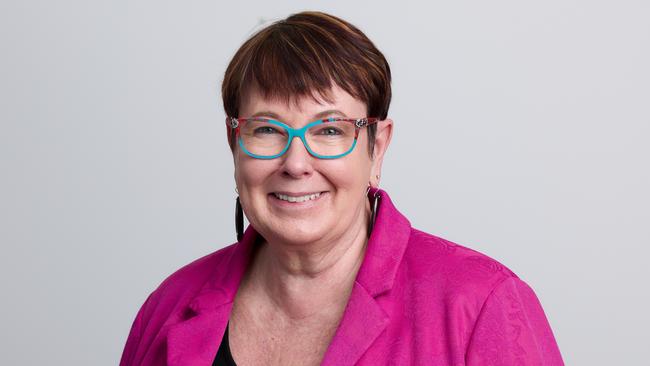
Belinda Von Knoll
Shadforth Financial Group
How important do you think it is to meet your clients face to face?
Meeting your clients face to face is the starting point in building a successful long-term relationship. Although technology has advanced by leaps and bounds, and has enabled lots of creative options for how to assist with delivering service to your clients, it cannot replace face-to-face meetings. As an adviser, you become one of the most trusted people in your clients’ lives, offering a rare safe space where they can talk about their finances and personal matters with complete privacy. Building a relationship and earning your client’s trust is quicker and more enduring if done in person. It allows you to read your client’s body language, and notice the shift in their position or their eyes when they do not understand a concept or, conversely, to see the moment of realisation when everything suddenly makes sense. Warmth and empathy build trust, and these are difficult to convey over the phone or in a Teams meeting. When you look someone in the eye, they can see you are genuine, actively listening to their story and, most importantly, that you care. It also enables you to use different methods of communication, such as visual references like graphs and tables, depending on how your clients best learn and understand.
Financial advice industry numbers have been cut in half; you are in the tiny minority that managed to get on our Top 150 list. Why do you think you made the cut?
The number of financial advisers has significantly decreased in the past few years. This has been the result of both positive and negative changes in our industry. On the positive side we have moved to being a profession with appropriate educational requirements on entry, and on an ongoing basis, and to operating under a code of ethics.
Some of the requirements put in place after the Hayne royal commission have unfortunately increased the cost to provide advice and made advice unaffordable for many smaller clients. This is not a great outcome for consumers, and has caused challenges for the financial sustainability of some advice businesses. These changes have resulted in many advisers leaving the industry; some as they are of an age where they do not wish to commence studying again, and some because their skills are not of an appropriate level to entitle them to stay in our profession.
At Shadforth, we make a promise to our clients that we will continue to be there for them and their families for many years. To fulfil this promise, our business must be successful and resilient. Perth is a small place where everyone knows everyone. Your reputation and character are critical to your ongoing success.
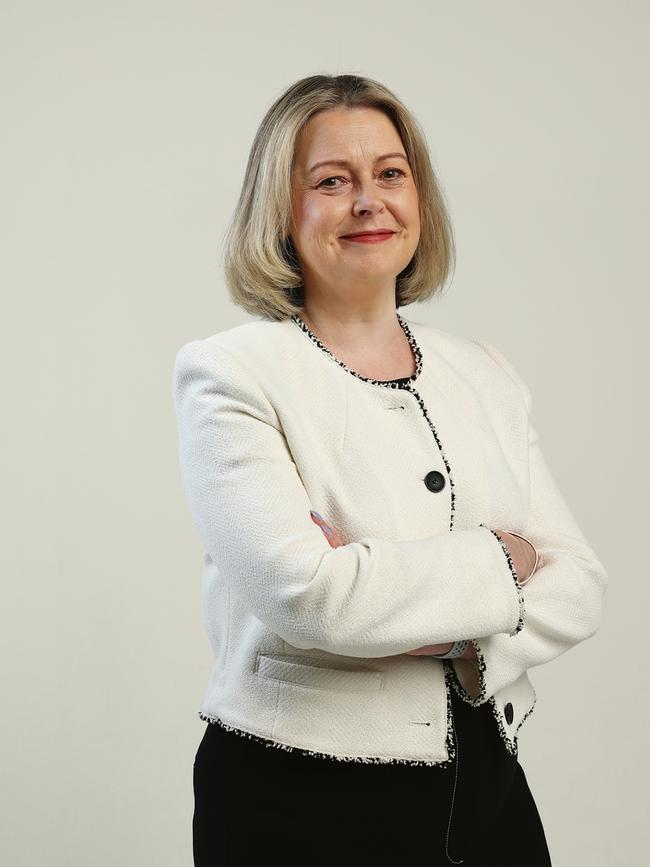
Laurel Moulynox
Morrows Private Wealth
How important do you think it is to meet your clients face to face?
Meeting clients face to face is not only important but is often the most rewarding aspect of being an adviser. Through these in-person interactions, we can truly get to know our clients and understand their needs on a deeper level. Building long-term, trusting relationships is key, especially when working with high net worth (HNW) families.
I believe it’s essential to go beyond just meeting in the office. By visiting clients in their homes and their own environments, we gain a better understanding of family dynamics and can make them feel more at ease. This is especially important when discussing sensitive financial matters. People tend to open up more when they are in a familiar setting.
In our role, facilitating family meetings across multiple generations is crucial. For HNW clients, educating and involving younger family members early in the process is important, ensuring the family’s wealth and values are successfully passed down.
Is putting extra money into superannuation savings still worth the trouble?
Absolutely! Making extra contributions to your superannuation is one of the best ways to build long-term wealth, especially if you start early. Even small additional contributions each month can grow significantly over 20 or 30 years due to the power of compounding. It’s a strategy that rewards consistency and time.
It’s also important to stay engaged with your super from an early age. By taking an active interest and making informed decisions about your investments, you can maximise the potential of your savings.
For high income earners, while the additional 15 per cent contributions tax may seem like a disadvantage, superannuation remains a highly tax-effective vehicle. The concessional tax treatment of both contributions and earnings makes it an ideal structure for building wealth and generating income for retirement.
Rich Australians are apparently rushing into “private” investments. Is it too late for everyone else to join the party?
At Morrows, we’ve been investing in private markets for many years. Although these investments were traditionally the domain of HNW individuals, they are increasingly becoming accessible to a broader range of investors, including retail investors. Private market investments, whether in early stage venture capital or private credit, can play an important role in a diversified portfolio.
However, it’s essential to understand that these are long-term investments, often with a 7-10 year time horizon, and they require patience. They are not about quick returns but about growth over the long term.
For those considering entering this space, my advice is to conduct thorough research. Choose partners with a proven track record and who are transparent about both their investment portfolios and processes. Private markets can offer significant opportunities, but partnering with the right team is critical to success.
Financial advice industry numbers have been cut in half; you are in the tiny minority that managed to get on our Top 150 list. Why do you think you made the cut?
This year marks Morrows’ 65th year of advising families and businesses, and I have been privileged to be part of this journey for over 30 years. I believe our success is based on a combination of experience, dedication and a deep commitment to our clients. With over 30 years of advising clients, I have had the privilege of building longstanding relationships, not just with individuals but with entire families and multiple generations. At Morrows, we take a multi-generational approach, guiding clients as they grow their wealth, plan their legacy and, importantly, foster values that extend beyond financial success.
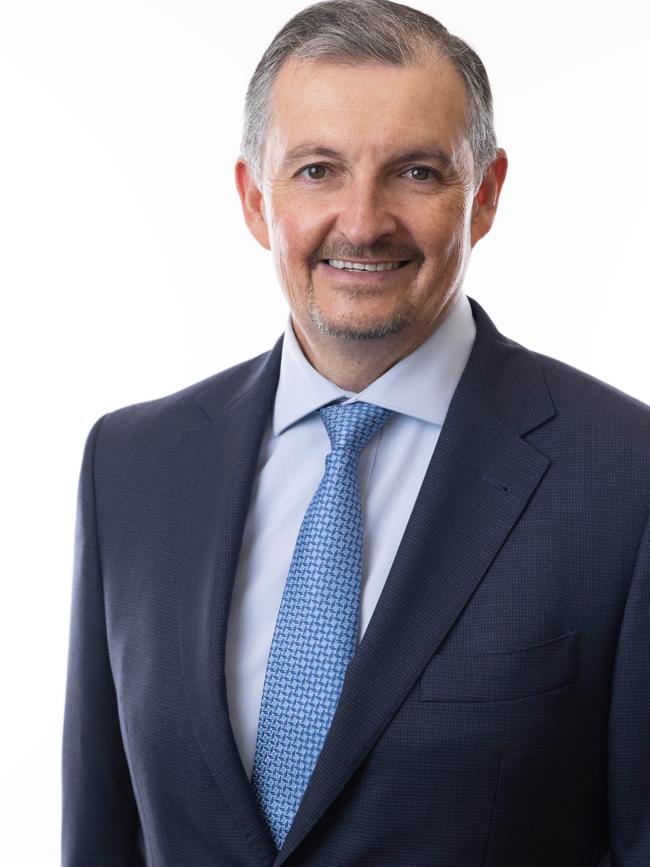
Chad Brendish
Morgan Stanley Wealth Management
Financial advice industry numbers have been cut in half; you are in the tiny minority that managed to get on our Top 150 list. Why do you think you made the cut?
The financial advice landscape has undergone tremendous change in recent years, and our team’s success stems from a combination of adaptability, unwavering client focus, and building deep expertise. Over my 25-plus years in the industry, while we have seen significant regulatory changes and evolving market conditions the core of my approach has remained the same: putting the client first. Our clients trust us with managing their wealth and future, so our focus is always on providing tailored, objective advice that reflects their unique circumstances.
Additionally, the support from a dedicated team has been crucial. I lead a high-performing team of four advisers and four support staff, each of whom brings exceptional skill, dedication and professionalism to our work.
Rich Australians are apparently rushing into “private” investments. Is it too late for everyone else to join the party?
Private investments have been gaining traction among wealthy Australians, and there’s good reason for this. The low-interest-rate environment over the past decade, coupled with increased volatility in public markets, has driven many investors toward alternative investments including private equity, venture capital and direct property investments. Fund managers have responded by improving access to these investments, which were previously the domain of institutional investors.
This asset class can offer the potential for high returns and diversification benefits in clients’ portfolios. However, private investments can be complex, and it’s critical that they align with the investor’s overall financial strategy and risk profile.
For investors interested in accessing these opportunities it’s crucial to work with an experienced financial adviser who can conduct thorough due diligence and provide personal advice to ensure that any private investment fits within their broader portfolio strategy. In short, the door isn’t closed, but careful consideration and expert guidance are more important than ever.
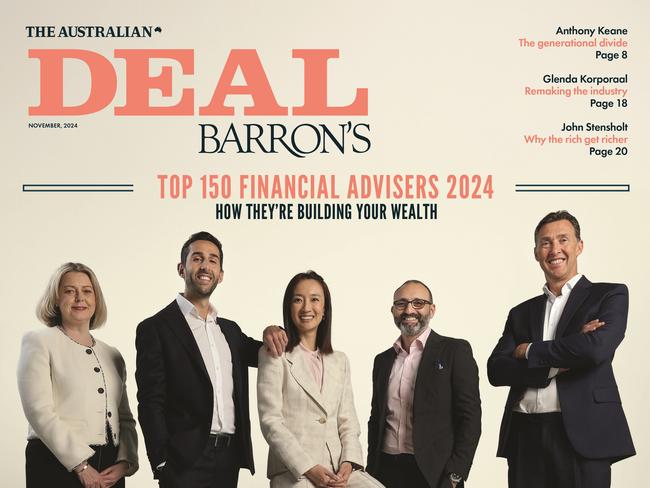
How important do you think it is to meet your clients face to face?
Meeting clients face to face remains incredibly important. Despite the growing use of digital communication tools, there’s a level of trust and understanding that is best established in person, particularly when dealing with the complexities of financial planning and wealth management. Personal meetings allow us to truly understand the nuances of our clients’ goals, concerns and values, which helps us provide effective personal advice.
That said, the Covid-19 pandemic has shown that technology can supplement traditional face-to-face interactions. Video conferencing and other digital platforms have made it easier to stay connected with clients, particularly board and investment committee members who are geographically distant or have demanding schedules.
However, while these tools add convenience, they don’t replace the depth of connection achieved through in-person meetings. The future of financial advice in our business likely involves a hybrid model, where face-to-face meetings and digital interactions work together to deliver the best client experience.
Big super funds are moving into financial advice. Does it threaten independent advisers?
The move by industry superannuation funds into providing financial advice to their members certainly presents new dynamics for the industry, but I don’t see it as a threat to independent advisers or established wealth firms. The market for financial advice is diverse, and different clients have different needs. Industry super funds are typically well-positioned to offer broad, lower-cost advice on matters such as retirement planning and superannuation contributions. However, clients with more complex needs such as high-net-worth individuals and not-for-profits often require a level of personalised, strategic advice that goes beyond what an industry super fund can offer.
Our team of advisers focuses on delivering a bespoke approach, tailored to each client’s unique financial situation and goals, going beyond investments.
Commencing with a strong investment policy, we consider and consult on areas such as tax structures, estate planning and preparing for the intergenerational wealth transfer. These are areas where specialised advice remains invaluable, and clients will continue to seek out relationships with advisers who can offer this depth of expertise.
The challenge for all advisers is to continually demonstrate the value of their tailored service, something I believe the most successful in our industry are well-equipped to do.
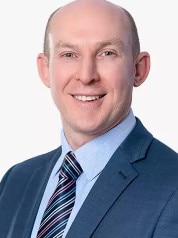
David Bedford
Pitcher Partners Investment Services
How important do you think it is to meet your clients face to face?
I can’t stress enough the importance of face-to-face meetings on a regular basis, and even more importantly at the beginning of the client relationship. At Pitcher Partners our advisers are required to regularly meet with clients in person, which forms the building blocks to enduring relationships. As humans we are visual in most aspects of our day-to-day lives and in my view the relationship will always be stronger if you have met the client in person and experienced directly their reaction to questions or simply how they greeted you at the front door. Face-to-face meetings allow you to get to know an individual more broadly than from just financial matters – you get to learn more closely where they actually work, live, with whom, and the extended version on personal interests. Remote working has allowed us to continue the face-to-face meetings online when required due to travel, sickness and schedule, but it’s just not the same unless you have met them in person before.
When you ask first-time clients about their risk tolerance, what can these clients do to formulate the correct answer?
In my view, successful investing and managing risk starts with answering the right questions. Most investors start with researching the best individual investments. We view it as appropriate to start with the questions that have been shown to provide the greatest impact on your overall investment return and formulating a client’s optimal risk tolerance. These questions are:
•What is the purpose of the capital?
•What is the duration of the capital?
•What are the income and growth needs?
•What can you afford to lose?
•What legal and tax structure is the capital in?
•What asset types can be considered/excluded?
Taking the time to meaningfully consider these questions will be a key driver in formulating a client’s risk tolerance. To support these questions, it is worthwhile for clients to complete a form of risk tolerance questionnaire as this can assist in understanding their emotional response to risk and assist in managing any potential future risks.
Rich Australians are apparently rushing into “private” investments. Is it too late for everyone else to join the party?
No, it’s not. We continue to witness greater product innovation in Australia, which is enabling investors to build more meaningful and diverse investment portfolios, and this includes private investments. The very nature of investments, and their corresponding cycles, means this evolution will continue for the foreseeable future. Private assets, or alternatives, as we refer to them at Pitcher Partners, is an extremely broad asset class that covers a diverse array of investment strategies including private equity, infrastructure, private debt and unlisted companies. Private investments can offer investors the ability to generate complementary streams of both capital growth and income compared to traditional equity and bond investments over time. Given their historically low correlation (sensitivity) to movements in traditional asset classes, blending alternative products with equity and bond investments can help to reduce the overall level of volatility in a portfolio. This isn’t an investment opportunity without risk, however, and most have limited liquidity until maturity. So, like all asset classes, it has its own unique array of pitfalls. Therefore, appropriate due diligence and manager selection are key to generating optimal outcomes for investors in private investments.



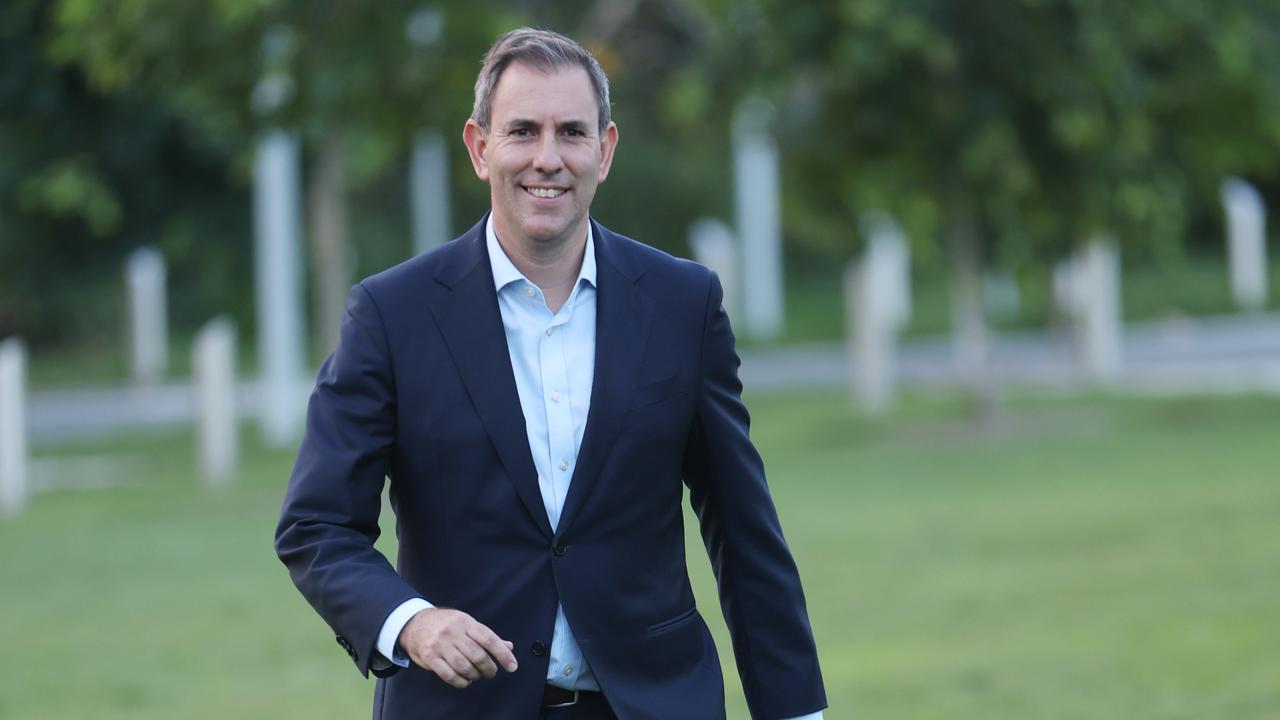

To join the conversation, please log in. Don't have an account? Register
Join the conversation, you are commenting as Logout